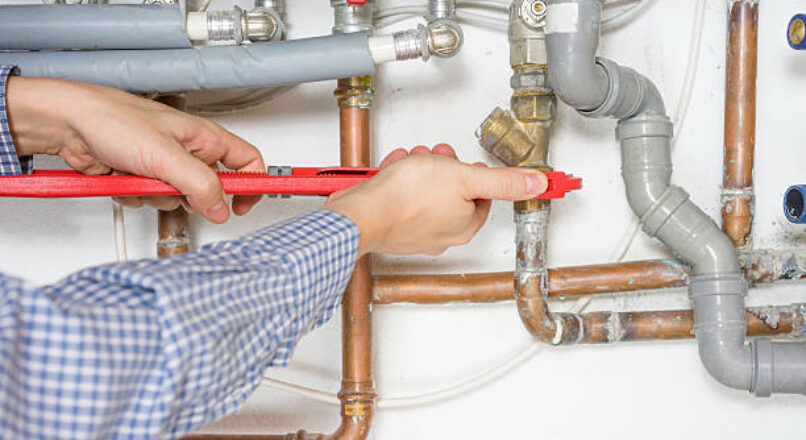
Plumbing and Sanitary Installation – Jamben Technical
What Regulations Should I Follow for Plumbing and Sanitary Installations?
Plumbing and sanitary installations play a crucial role in ensuring the safety, hygiene, and functionality of any building. Whether you are constructing a new property, renovating an existing one, or managing an ongoing project, adhering to local plumbing regulations is essential. These regulations are designed to protect public health, prevent water wastage, and ensure that installations are safe, efficient, and compliant with building codes. In this blog, we will explore the key regulations you should follow for plumbing and sanitary installations, focusing on essential guidelines, safety standards, and legal requirements.
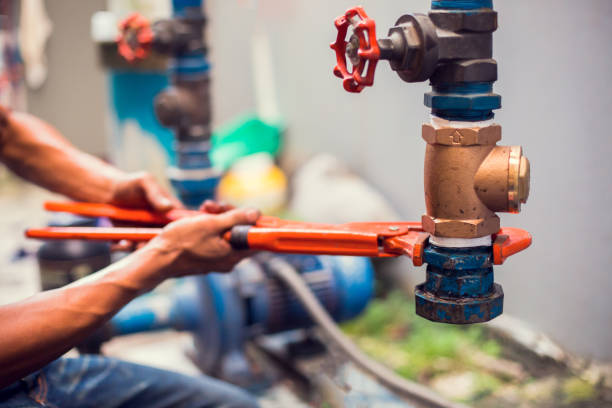
1. Local Building Codes and Regulations
Each region or country has its own set of plumbing and sanitary installation, which are often detailed in local building codes. These codes provide the legal framework for the design, installation, and maintenance of plumbing systems. These codes outline:
- Pipe sizing and installation: Proper pipe dimensions and correct installation practices are outlined to ensure water flows efficiently and pressure levels are maintained.
- Water conservation standards: Many codes require the use of water-efficient fixtures like low-flow toilets and faucets to minimize water consumption.
- Health and safety standards: These include guidelines to prevent contamination of potable water by backflow or cross-connections with non-potable water sources.
2. Health and Hygiene Standards
Plumbing systems are integral to maintaining hygiene and safeguarding public health. The regulations aim to prevent the spread of diseases caused by contaminated water or improper waste disposal. Some essential health-related plumbing regulations include:
- Sewage disposal: Proper sewage systems must be installed to handle human waste safely and prevent blockages, leaks, or contamination.
- Ventilation: Wastewater and sewer systems must be adequately ventilated to avoid the buildup of harmful gases like methane, which can lead to health hazards or even explosions.
- Water treatment and filtration: In regions where water quality is a concern, regulations often dictate that water undergoes treatment or filtration before being distributed for domestic use.
3. Water Supply and Distribution
Regulations for water supply and distribution ensure that clean water reaches every part of the building and that water pressure is maintained. These regulations typically cover:
- Pipe materials and connections: Only approved materials like copper, PEX, or CPVC are permitted for water pipes to prevent contamination and ensure durability.
- Pressure tests: Plumbing systems are often required to undergo pressure tests to ensure there are no leaks in the water supply system.
- Water flow and pressure: Water must flow at appropriate pressure levels to provide sufficient supply to all fixtures, including sinks, showers, and toilets, without strain on the system.
4. Wastewater Management
Wastewater must be managed in compliance with local regulations to prevent environmental contamination and public health risks. Wastewater regulations typically focus on:
- Drainage systems: Proper drainage should be in place to prevent flooding or water accumulation, especially in areas like basements or underground systems.
- Septic tanks or sewage treatment plants: For properties not connected to the main sewer system, regulations may require the installation of septic tanks or sewage treatment systems that meet safety standards.
- Discharge quality: The wastewater discharged from a building should meet local standards for safe disposal, and systems must be in place to prevent contamination of natural water sources.
5. Gas Installations and Safety
If your plumbing system includes gas installations for heating or cooking, you must comply with specific regulations to prevent leaks, explosions, or poisoning. Regulations regarding gas installations typically include:
- Certified gas fitters: Only licensed professionals should be allowed to install or repair gas lines.
- Gas leak detection: Proper safety measures, including gas leak detectors, should be in place to quickly identify any issues and avoid accidents.
- Ventilation: Gas systems must be properly ventilated to ensure that harmful gases such as carbon monoxide are not trapped inside living spaces.
6. Electrical and Plumbing Integration
In modern homes or commercial buildings, plumbing systems are often integrated with electrical installations, especially in areas like bathrooms and kitchens. It’s essential to ensure that:
- Electrical wiring near plumbing: Any electrical work near plumbing should follow strict safety regulations to avoid electrocution risks.
- Grounding and bonding: Proper grounding and bonding of metallic pipes should be done to ensure electrical safety in wet areas.
- Use of GFCI outlets: Ground Fault Circuit Interrupter (GFCI) outlets must be installed in areas with plumbing systems, such as bathrooms, kitchens, and laundry rooms, to protect against electrical shocks.
7. Fire Safety Regulations
Fire safety in plumbing installations, particularly for hot water systems, is a vital part of the regulatory framework. These regulations might include:
- Thermal expansion control: A water heater system should have a thermal expansion tank to prevent pressure buildup due to water heating.
- Pipe insulation: Pipes carrying hot water should be insulated to prevent burns or injury from accidental contact with the pipes.
8. Permits and Inspection Requirements
Before starting any of them plumbing and sanitary installation project, it’s crucial to obtain the necessary permits from local authorities. Permits are typically required for:
- New plumbing systems: New constructions or renovations that involve plumbing installations need approval from the local authorities.
- Inspections: After installation, your plumbing system will likely need to pass inspection to ensure that it complies with all regulations. Inspections may cover aspects such as pipe connections, pressure tests, water quality, and proper drainage.
What common plumbing issues should I anticipate during renovation?
Renovating your home can be an exciting yet challenging endeavor, especially when it comes to updating your plumbing systems. Whether you’re upgrading the kitchen renovation service, bathroom renovation service, or entire home, plumbing issues often emerge during renovations that can cause unexpected delays and expenses. Understanding what common plumbing problems may arise can help you better prepare and ensure your project runs smoothly.
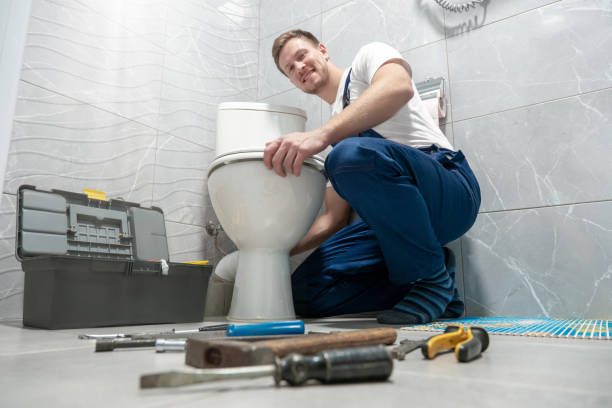
Here are the most common plumbing issues you should anticipate during renovation:
1. Leaking Pipes
During renovations, old plumbing systems might get disturbed or even damaged in the process. If the pipes are old, they could leak or even burst due to the vibrations, pressure, or impact caused during demolition or installation. Leaking pipes can lead to water damage, mold growth, and increased costs for repair.
Solution: Before starting the renovation, it’s crucial to have a professional plumber inspect your current plumbing system. If necessary, replace any old or corroded pipes, especially those made from outdated materials like galvanized steel or lead.
2. Water Pressure Problems
When upgrading plumbing fixtures (e.g., faucets, showers, or toilets), you might encounter issues with water pressure. New fixtures often have different water pressure requirements, and if your system can’t handle the upgrade, you might experience reduced water flow or inconsistent pressure.
Solution: A plumbing professional can assess the water pressure before the renovation. In some cases, installing a pressure regulator or upgrading the water line may be required.
3. Clogged Drains
Renovation work can stir up dust, debris, and even small objects that might inadvertently fall into the drains, leading to blockages. This is particularly common if you’re tearing down walls or replacing flooring. Additionally, old pipes may have accumulated years of debris, making them more susceptible to clogs during the renovation process.
Solution: Have a plumber check the drains and pipes to clear out any debris before starting your renovation. In severe cases, you may need to replace or upgrade your drain system.
4. Inadequate Ventilation
Proper ventilation is critical for your plumbing system to work efficiently. If you’re moving or adding plumbing fixtures, poor venting can lead to slow-draining sinks, foul odors, and even sewer gases backing up into your home.
Solution: Ensure your new plumbing design includes sufficient venting to avoid these issues. A professional plumber will be able to help with the installation of air vents, especially in areas where plumbing has been modified or added.
5. Incorrect Pipe Sizing
When installing new appliances, bathtubs, or sinks, it’s important to ensure that the pipe sizes match the requirements of the new fixtures. Incorrectly sized pipes may lead to leaks, drainage problems, and poor appliance performance.
Solution: Always work with a licensed plumber to ensure that the pipe sizing is compatible with your renovation plans. The plumber will verify the appropriate pipe diameter and materials required for the new setup.
6. Unanticipated Plumbing Code Violations
During renovation, especially if it’s an older home, there could be plumbing systems that do not meet current building codes. These issues may not be immediately visible until you begin to move or adjust the existing pipes.
Solution: A professional plumber should inspect your home for plumbing code compliance before any major work begins. This will help you avoid costly fines or the need for major revisions later on.
The Importance of Regular Plumbing Work Maintenance in Dubai?
Dubai, known for its modern infrastructure and luxurious lifestyle, requires well-functioning plumbing systems to support its bustling urban environment. Whether in residential homes, office buildings, or commercial spaces, plumbing plays a crucial role in maintaining comfort and safety. However, like any system, plumbing work in Dubai regular attention to function optimally. This is why regular plumbing work maintenance in Dubai is of paramount importance.
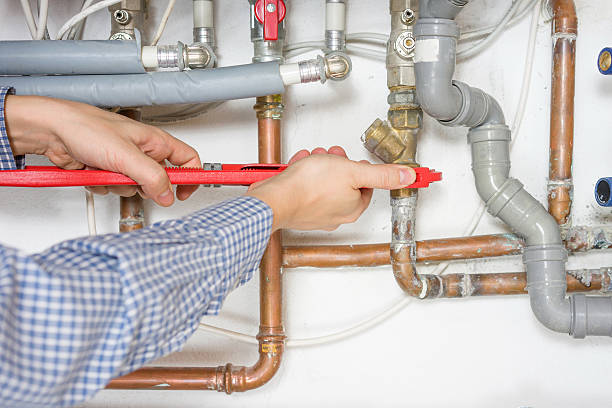
Why Regular Plumbing Maintenance Is Essential
- Prevents Costly Repairs One of the most significant benefits of regular plumbing maintenance is that it helps prevent expensive repairs. Small issues, such as leaks, pipe blockages, or faulty faucets, may seem minor at first, but they can escalate into costly problems if left unchecked. Routine inspections and maintenance allow professionals to identify and address potential issues before they require costly repairs or replacements.
- Preserves Water Quality and Safety Plumbing systems in Dubai are designed to deliver clean, safe water to homes and businesses. Over time, pipes can develop sediment buildup or corrosion, leading to contamination or diminished water quality. Regular plumbing maintenance ensures that pipes remain in good condition and water flows without interruptions or contamination, ensuring the health and safety of everyone in the household or office.
- Improves Efficiency and Reduces Water Waste Dubai is one of the world’s driest cities, making water conservation a top priority. Leaky faucets, running toilets, or broken irrigation systems can waste a significant amount of water. Through routine maintenance, plumbing experts can ensure that your fixtures and systems are operating efficiently. This not only reduces water waste but also lowers utility bills, which is essential in a city where water usage is closely monitored.
- Increases the Longevity of Plumbing Systems Plumbing systems are built to last, but they require regular upkeep to remain functional over the long term. Neglecting routine maintenance can cause early wear and tear, resulting in the need for costly replacements or overhauls. Regular inspections and maintenance extend the lifespan of your plumbing infrastructure, saving you from the hassle of frequent replacements.
- Enhances Property Value Well-maintained plumbing systems are a key factor in the overall value of any property in Dubai. Buyers and renters are likely to view a property with modern, efficient plumbing systems as more desirable. Regular maintenance ensures that your property remains in top condition, which can be a major selling point if you ever decide to rent or sell it.
- Avoids Water Damage and Mold Growth Leaks, clogged drains, and burst pipes can cause significant water damage to walls, ceilings, and flooring. Water damage not only weakens structural elements but also creates an ideal environment for mold growth. Mold can pose serious health risks and lead to expensive repairs. Regular plumbing maintenance helps identify potential leaks and prevent them from causing long-term damage.
- Emergency Prevention Plumbing emergencies, such as burst pipes, clogged sewer lines, or malfunctioning water heaters, can occur at any time, often leading to inconvenience and significant repair costs. Regular maintenance allows plumbers to spot warning signs early on, preventing emergencies from happening in the first place.
How Often Should Plumbing Maintenance Be Done?
The frequency of plumbing maintenance depends on several factors, including the age of the plumbing system and how frequently the plumbing is used. However, it is generally recommended to have professional plumbing inspections at least once a year. Regular inspections help identify any small issues that could turn into bigger problems later.
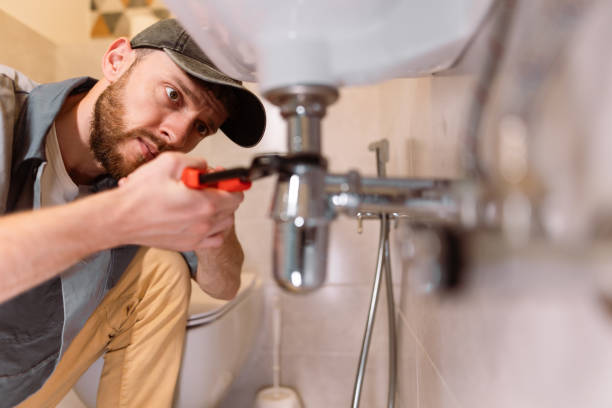
Jamben Technical Services specializes in comprehensive plumbing and sanitary installation solutions, catering to both residential and commercial needs. With a commitment to excellence, the company employs a team of highly skilled technicians who are adept at handling a wide range of plumbing tasks, from the installation of piping systems to the setup of advanced sanitary fixtures. Utilizing state-of-the-art technology and high-quality materials, Jamben ensures that every project is executed with precision and durability in mind.

Leave a reply